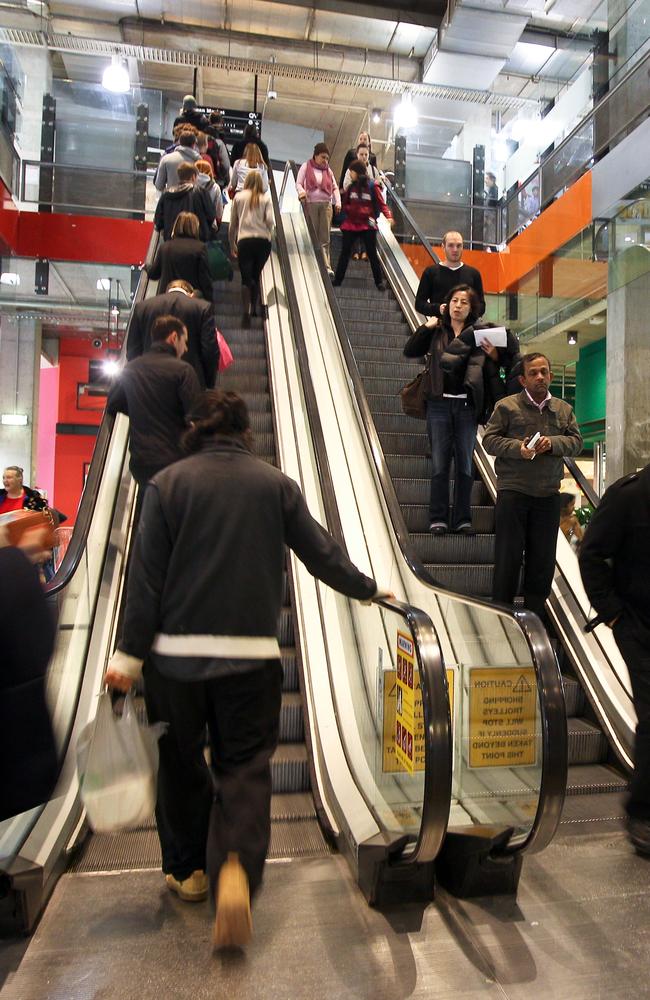‘Messing with my mind’: Why stopped escalators feel so weird
Ever wondered why it feels so strange when you walk on an escalator that’s not moving? Dr Karl explains why.

You have ever wondered why a stopped escalator feels so weird? Well, there’s actually some pretty interesting science behind it.
Dr Karl Kruszelnicki, the man who can explain almost anything, can explain this too.
In a video released by Triple J, Dr Karl said several factors are at play.
“Because it’s so steep,” he explained.
“On normal stairs, you’ve got a long tread and a short riser, and the ratio is about two or three to one.
“But on the escalator stairs, you got a short tread and a medium riser. So they feel really stupid.”


Dr Karl also said those around you add to the feeling of unease when the escalator goes dead.
“Instead of being at a reasonable distance from somebody, you’re stuck next to them because it’s so narrow,” he said.
Lastly, he explains, it comes down to years of conditioning.
“You have been conditioned by decades of going on stairs,” he said.
“You come – the escalators – and then you just stand there, and you do nothing. But suddenly, on this occasion, you stand there, and you do nothing, and you stay where you are. Oh my god, they’re messing with my mind – I don’t know what to do,” he exclaims.
There is even a name for that funny feeling.
Research has shed light on the broken escalator phenomenon, a sensory experience that affects some people when stepping onto an escalator that is not moving.
The broken escalator phenomenon causes people to step inappropriately fast onto a non-moving platform, even when they know it is not going to move.

More Coverage
The phenomenon is the result of a locomotor after-effect that replicates the posture adopted when walking onto a moving platform. Adolfo Bronstein and Raymond Reynolds studied this after-effect in an experiment published in 2003, and further explored through a series of other experiments.
The phenomenon was first discussed by Brian Simpson in 1992, who named it the “escalator effect.”
The research suggested that the brain has separate systems for knowing and doing things.




